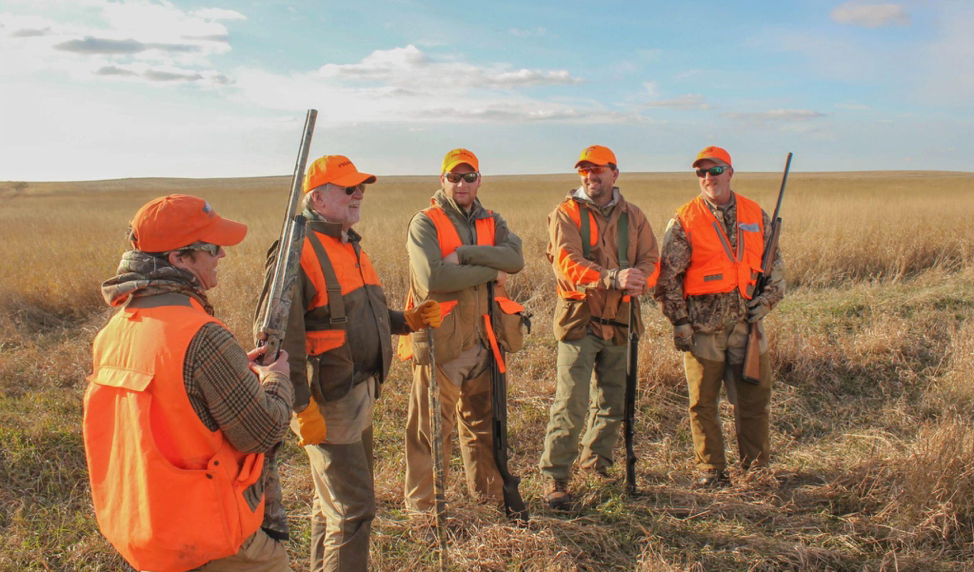When you’re out in the wild, the last thing you want is for your gear to fail. Whether you’re hiking through wet forests, climbing rocky terrain, or dealing with surprise rainstorms, hunting gear takes a beating. That’s why protecting your equipment is just as important as packing it.
A waterproof case might not be the most exciting item in your hunting setup—but it’s one of the most important. In this article, we’ll go over the essential hunting gear that needs protection, and why a strong, waterproof hunting case can save your trip.
Why Hunters Need Gear Protection
Hunting isn’t just about the moment you take the shot. It’s about preparation, patience, and having the right tools working when you need them. But nature doesn’t care how expensive your rangefinder is, or how long you spent sighting in your rifle. One unexpected downpour or drop on a rocky trail, and your trip could be over.
Here’s what your gear faces outdoors:
- Rain and water crossings
- Mud and dust
- Falls and impact
- Sudden weather changes
- Temperature shifts
- Long-distance travel (road or air)
Even one of these conditions can ruin your equipment if it’s not stored properly. That’s why waterproof, impact-resistant cases are a must-have.
Hunting Gear That Needs Protection
Let’s take a closer look at what you should always protect when heading out on a hunt:
1. Firearms (Rifles & Shotguns)
Your rifle or shotgun is your primary tool. Any damage to its body or optics can affect accuracy—or worse, make it unsafe to use.
Risks:
- Moisture causing rust
- Scope misalignment from bumps
- Dents or scratches from rough transport
How to protect:
A hard, waterproof case with custom foam cutouts keeps your firearm in place and shields it from rain, impact, and dust. For flights or rough terrain, this is non-negotiable.
2. Optics (Scopes, Binoculars, Rangefinders)
These precision tools help you scout, aim, and track game from a distance. They are sensitive and can get knocked out of alignment easily.
Risks:
- Water or condensation inside lenses
- Dust particles scratching the glass
- Accidental drops or pressure damage
How to protect:
Use a padded waterproof case with egg-crate foam or dividers. Keep lens caps on and store optics in dry, cushioned compartments when not in use.
3. GPS Devices & Radios
Staying safe and on track is part of the hunt, especially in unfamiliar areas. Electronic tools like handheld GPS devices, radios, and satellite messengers need to stay dry and working.
Risks:
- Water damage
- Battery corrosion
- Broken screens or buttons
How to protect:
A compact, crushproof waterproof case with a sealed lid and padding keeps these critical tools safe from the elements.
4. Knives and Multi-tools
These small tools are often used for field dressing, gear repairs, or general camp tasks. They’re sharp, valuable, and easy to lose or damage.
Risks:
- Blades getting dull or broken
- Rust from moisture
- Accidental cuts while rummaging in a bag
How to protect:
Use a slim waterproof case or hard pouch with internal straps or foam slots to keep each tool secure and separate.
5. First Aid and Survival Gear
Even if it’s not used every trip, your emergency gear is vital. A wet or damaged first aid kit might be useless when you need it most.
Risks:
- Water ruining bandages and matches
- Leaking liquids or medicines
- Mold or bacteria growth in damp kits
How to protect:
Store medical and emergency gear in a small waterproof box with an airtight seal. Make sure it’s easy to access in your pack or vehicle.
6. Cameras and Drones (Optional)
If you record your hunts or capture nature footage, you probably carry sensitive camera equipment. These devices are expensive and delicate.
Risks:
- Water short-circuiting electronics
- Lenses breaking
- SD cards getting lost or damaged
How to protect:
Use shockproof, watertight cases with foam compartments or dividers. Keep memory cards in a small waterproof wallet inside your main case.
Why Waterproof Matters
You might be wondering why waterproof matters – why not just use a regular backpack or soft gear bag?
Here’s why a waterproof case makes a huge difference:
- Water can get into zippers and fabric – most backpacks are water-resistant, not waterproof.
- Sudden rainstorms happen – and they don’t wait for you to pack up.
- Crossing streams or rivers is common in many hunting areas.
- Moisture from fog or dew can slowly seep in over time.
A truly waterproof case has a sealed gasket around the lid and tight latches that block out all water—even if dropped in a creek.
Don’t Forget Impact Protection
Water isn’t the only danger. A fall from your truck bed, a tumble down a slope, or even rough airline baggage handling can crack, dent, or misalign your gear.
Waterproof hard cases usually also offer:
- Shock resistance
- Crushproof shells
- Foam padding inside
This dual protection—water + impact—is what makes them so valuable to hunters.
Planning to Travel?
If you’re flying to a hunting destination, you’ll also want a case that:
- Has a pressure relief valve for air travel
- Meets airline size or lock requirements
- Can be securely padlocked
This ensures your gear stays safe during check-in and protected from rough baggage handling.
What to Look for in a Protective Case
When choosing a case to protect your hunting gear, look for:
- Waterproof rating (IP67 or better)
- Impact resistance and durable build
- Foam interior or dividers
- Good size for your gear
- Secure latches and optional lock holes
- Handles or wheels for easy carry
- Stackable or storable design for organizing multiple cases
Final Thoughts
Hunting is about skill, patience, and being ready. But you can’t do that if your gear breaks, rusts, or fails at the wrong time.
A good waterproof case is like insurance—it protects the tools you rely on most. Whether it’s your rifle, rangefinder, GPS, or camera, giving each item a safe, dry place to ride is one of the smartest decisions you can make as a hunter.
Before your next trip, take a moment to check:
Is your gear safe from water, drops, and dust?
If not, it’s time to pack smarter.


